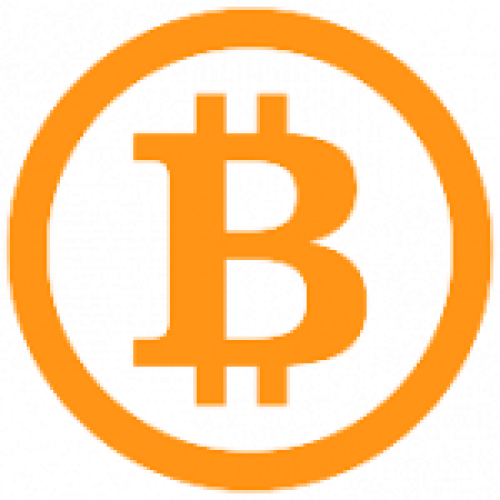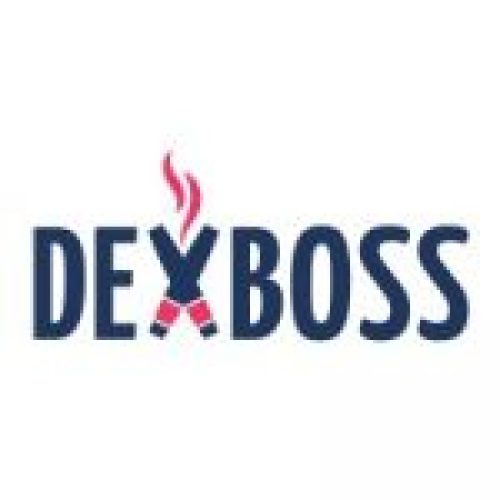The blockchain revolution is well underway, and its impact is being felt across various industries, from finance and supply chain management to healthcare and governance. As businesses and organizations increasingly recognize the transformative potential of this decentralized ledger technology, the demand for skilled blockchain developers has skyrocketed. If you’re interested in learning blockchain development and positioning yourself at the forefront of this technological revolution, this comprehensive guide will help you navigate the best resources available.
Understanding Blockchain Development:
Before diving into the various learning options, it’s essential to understand the fundamentals of blockchain development. At its core, blockchain is a distributed, decentralized database that records transactions and stores data in a secure and transparent manner. Unlike traditional databases, blockchain relies on a network of nodes (computers) to validate and record transactions, eliminating the need for a central authority.
Blockchain development involves building and deploying decentralized applications (dApps) and smart contracts on top of blockchain platforms like Ethereum, Hyperledger, and Bitcoin. These applications leverage the immutable and transparent nature of blockchain to enable secure data storage, peer-to-peer transactions, and automated contract execution.
To become a proficient blockchain developer, you’ll need to acquire a diverse set of skills, including:
- Understanding blockchain architecture and consensus mechanisms
- Programming languages like Solidity (for Ethereum), Go, and JavaScript
- Smart contract development and deployment
- Cryptography and secure hashing algorithms
- Decentralized application (dApp) development
- Testing and deploying blockchain solutions
With this knowledge, you’ll be equipped to build and deploy a wide range of blockchain-based applications across various industries.
Best Blockchain Development Training Resources:
- Online Courses and Platforms:
One of the most accessible and convenient ways to learn blockchain development is through online courses and platforms. These resources offer a wealth of instructional materials, hands-on projects, and often, certification upon completion.
a. Udemy: Udemy offers a vast collection of blockchain development courses, ranging from beginner-level introductions to advanced topics like Ethereum, Hyperledger, and smart contract development.
b. Coursera: Coursera partners with top universities and companies to provide high-quality online courses, including several blockchain development classes covering topics like blockchain essentials, Ethereum, and decentralized applications.
c. edX: edX, a trusted online learning platform, offers blockchain development courses from leading institutions like UC Berkeley, MIT, and IBM, allowing you to learn from industry experts.
- Blockchain Development Bootcamps:
For those seeking an intensive, immersive learning experience, blockchain development bootcamps can be an excellent choice. These programs typically offer a structured curriculum, hands-on projects, and career support services.
a. Blockchain Training Alliance: The Blockchain Training Alliance offers a comprehensive blockchain development bootcamp that covers Ethereum, Hyperledger, and Bitcoin, providing students with the skills needed to become certified blockchain developers.
b. Consensys Academy: Powered by Consensys, a leading blockchain company, the Consensys Academy offers a range of blockchain development courses and bootcamps, including topics like Ethereum development, decentralized finance (DeFi), and blockchain security.
c. Byte Academy: Byte Academy’s Blockchain Engineering with Ethereum and Solidity bootcamp offers a comprehensive curriculum, covering Ethereum, Solidity, and smart contract development.
- University and College Programs:
Several universities and colleges have recognized the growing demand for blockchain expertise and have introduced degree programs, certificates, and specialized courses in blockchain development.
a. MIT Digital Currency Initiative: MIT’s Digital Currency Initiative offers courses and resources focused on blockchain technology, cryptocurrencies, and decentralized applications.
b. Stanford Center for Blockchain Research: The Stanford Center for Blockchain Research provides courses, seminars, and resources on blockchain development, cryptography, and related topics.
c. Cornell Blockchain: Cornell University offers courses and research opportunities in blockchain technology, smart contracts, and decentralized applications.
- Industry Certifications and Workshops:
In addition to formal education programs, several organizations offer industry-recognized certifications and workshops for blockchain developers.
a. Ethereum Certification: The Ethereum Foundation provides a certification program for developers interested in building on the Ethereum blockchain.
b. Hyperledger Certification: Hyperledger, a collaborative open-source blockchain project, offers certification programs for developers and administrators working with Hyperledger technologies.
c. Blockchain Workshops and Events: Various organizations and companies offer blockchain workshops and events, providing hands-on training and networking opportunities for aspiring blockchain developers.
- Online Communities and Resources:
In addition to formal learning resources, engaging with online communities and leveraging open-source resources can be invaluable for learning blockchain development.
a. GitHub: GitHub is a vast repository of open-source blockchain projects, allowing you to explore and contribute to various blockchain codebases.
b. Reddit: The r/BlockchainDevelopers subreddit is a vibrant community where developers share insights, ask questions, and discuss blockchain-related topics.
c. Blockchain Developer Blogs and Resources: Many experienced blockchain developers maintain blogs and curate resources, providing valuable insights, tutorials, and best practices.
Choosing the Right Learning Path:
With so many options available, choosing the right learning path can be daunting. Here are some factors to consider:
- Your existing technical background: If you have prior programming experience, you may be able to tackle more advanced blockchain development courses or bootcamps. However, if you’re new to coding, it’s recommended to start with beginner-level resources that cover programming fundamentals.
- Your learning style: Assess whether you prefer self-paced online courses, structured bootcamps, or a traditional classroom setting. Different learning formats cater to different learning styles, so choose the one that best suits your preferences.
- Your career goals: If you’re looking to become a full-time blockchain developer, consider intensive bootcamps or degree programs that provide comprehensive training and career support. If you’re interested in blockchain as a complement to your existing skillset, shorter courses or certifications may be more suitable.
- Your budget and time commitment: Blockchain development resources range from free online courses to expensive university programs. Determine your budget and the amount of time you can dedicate to learning, and choose resources accordingly.
Regardless of the path you choose, consistent practice and hands-on projects are crucial for mastering blockchain development. Building and deploying real-world applications will solidify your understanding and prepare you for the dynamic challenges of this rapidly evolving field.
Beginner Blockchain Development Guide:
If you’re new to blockchain development, it’s essential to start with the fundamentals. Here’s a beginner’s guide to help you kickstart your journey:
- Learn the basics of blockchain technology: Familiarize yourself with the key concepts of blockchain, such as decentralization, consensus mechanisms, hashing, and cryptography.
- Get acquainted with programming languages: While blockchain development can involve various programming languages, it’s recommended to start with JavaScript or Python, as many online resources and tutorials are based on these languages.
- Explore Solidity: Solidity is the primary programming language for developing smart contracts on the Ethereum blockchain. Learning Solidity is crucial if you plan to build dApps on Ethereum.
- Understand Ethereum: Ethereum is one of the most popular blockchain platforms for building decentralized applications. Gain a solid understanding of Ethereum’s architecture, ecosystem, and development tools.
- Practice with online tutorials and projects: Many online courses and platforms offer hands-on tutorials and projects to help you apply your knowledge and build practical skills.
- Join online communities: Engage with online communities like Reddit, Discord channels, and developer forums to ask questions, seek guidance, and stay updated with the latest trends and developments in the blockchain space.
Advanced Blockchain Development Resources:
As you progress in your blockchain development journey, you’ll want to explore more advanced topics and resources. Here are some recommendations for taking your skills to the next level:
- Mastering Solidity: Dive deeper into Solidity by exploring advanced topics like inheritance, libraries, and security best practices. Resources like the Solidity documentation and CryptoZombies can be valuable for mastering this language.
- Exploring other blockchain platforms: While Ethereum is a popular choice, broaden your knowledge by learning about other blockchain platforms like Hyperledger, Corda, and EOS. Each platform has its own strengths, use cases, and development tools.
- Decentralized Finance (DeFi): DeFi is a rapidly growing sector that aims to recreate traditional financial services on decentralized blockchain networks. Resources like DeFi Pulse and DeFi Primer can help you understand and develop DeFi applications.
- Blockchain security: As blockchain applications handle valuable assets and sensitive data, security is of paramount importance. Learn about best practices for secure smart contract development, auditing, and vulnerability testing.
- Blockchain scalability solutions: Scalability is a significant challenge in blockchain development. Explore layer-2 solutions like sidechains, state channels, and plasma, as well as sharding techniques employed by projects like Ethereum 2.0.
- Attend blockchain conferences and hackathons: Participating in blockchain conferences, meetups, and hackathons can provide valuable networking opportunities, hands-on experience, and exposure to the latest trends and innovations in the field.
Conclusion:
The world of blockchain development is brimming with opportunities for those willing to invest time and effort in learning this cutting-edge technology. From online courses and bootcamps to university programs and industry certifications, the resources available cater to a wide range of learning styles, backgrounds, and career goals.
As businesses and organizations continue to embrace the transformative potential of blockchain, the demand for skilled developers will only grow. By taking advantage of the resources outlined in this guide, you can position yourself at the forefront of this technological revolution and unlock a world of exciting career prospects in blockchain development.
Remember, learning blockchain development is an ongoing journey. Stay curious, engage with the vibrant blockchain community, and continuously update your skills to keep pace with the rapid advancements in this field. With dedication and a passion for innovation, you can become a valuable contributor to the blockchain ecosystem and shape the future of decentralized applications.



